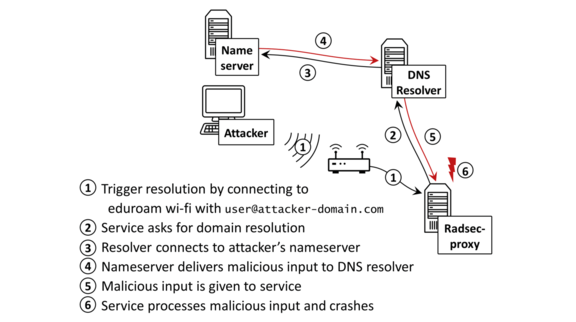News

Fragile protection of our communications via submarine cables
ATHENE researchers study states' vulnerability to submarine cable failures
Today, we take it for granted that we can call up a website, stream a movie or be active in social networks within seconds. Many people are often unaware that the data transfer takes place via thousands of kilometers of cable laid at the bottom of the ocean. Today, around 98 percent of international Internet traffic is handled via undersea communication cables. Coastal and island states are highly dependent on this physical infrastructure to provide Internet connections. However, although an annual average of about 100 submarine cable failures of human or natural origin occur, there is currently no global analysis that assesses the vulnerability of individual states to failures on a global scale.
ATHENE scientists Jonas Franken, Thomas Reinhold and Prof. Christian Reuter from the Chair of Science and Technology for Peace and Security (PEASEC) at TU Darmstadt have tackled this issue.

Post by ATHENE researcher on APNIC Blog: Stalloris: RPKI downgrade attack
Cybersecurity expert Prof. Haya Shulman and her team have demonstrated that RPKI deployments in the Internet are vulnerable to downgrade attacks: adversaries can disable RPKI validation exposing networks to BGP prefix hijacks attacks. Haya Shulman describes the findings and conclusions the researchers draw from their attack in her latest blog post on APNIC.
read more
ATHENE scientist issues new commentary on data protection
Data protection law presented in an comprehensible way – this is what a new commentary on the General Data Protection Regulation (GDPR) and other data protection standards offers. Until now, there has been no work that explicitly addresses not only students and graduates of law, but also those outside the field. This gap has now been closed by the new commentary published by ATHENE researcher Dr. Annika Selzer. The data protection expert has been working intensively on questions of legal and technical data protection for more than ten years. At ATHENE, she leads projects in the research area User-centered Security and Privacy (UCSP).
read more
AirGuard declares war on stalkers
AirTags are small Bluetooth transmitters from Apple that people can use to quickly and easily find lost items, misplaced keys and bags. But what is intended as a help can also be used to track people unnoticed. Apple itself warns against AirTag stalking. A research-team at the Secure Mobile Networking Lab at TU Darmstadt is conducting research on this topic in ATHENE. Last year, the team published AirGuard, an app that also warns users of Android devices about unwanted AirTag tracking. Now, in a new paper, the researchers use user reports and data donations from 38,000 users to show that the app works well - and even warns faster than the Apple protection mechanism.
read more
Post by ATHENE researcher on APNIC Blog: Resurrection of injection attacks
In his blog post ATHENE researcher Philipp Jeitner, scientist at Fraunhofer SIT and TU Darmstadt, describes how the Domain Name System (DNS) can be exploited for injection attacks against a variety of different applications. He also shows why countermeasures aren't as easy as to apply patches to vulnerable implementations. A tool to test DNS resolver for vulnerabilities is also linked in the post.
read more
